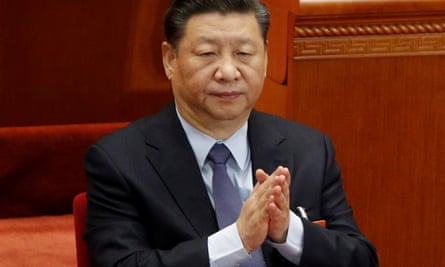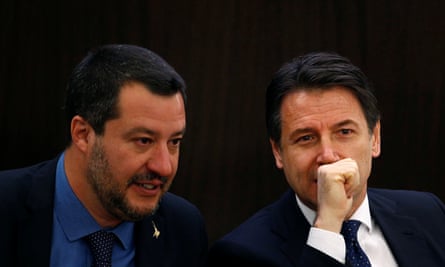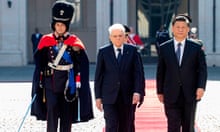Italy has signalled its determination to play a central role in China’s grand plan to build a Silk Road-styled global trade network, despite rattling its EU and US allies with its plan.
The country’s populist government is poised to endorse its participation in Beijing’s $1tn Belt and Road Initiative (BRI), a global trade project aimed at connecting Asia, the Middle East, Africa and Europe via a network of ports, railways, tunnels and other infrastructure, by signing a non-binding memorandum of understanding (MoU) during the Chinese president Xi Jinping’s visit to Italy this week.
Italy, which would become the first G7 country to back the initiative, hopes it will revive its sluggish economy and help open up greater access to China’s lucrative market.
The Five Star Movement (M5S), the populist party governing alongside the far-right League, has been the driving force behind the country’s collaboration in an initiative the US believes is being used by China, its trade rival, to embolden its political and strategic clout.
Garrett Marquis, a spokesman for the White House’s group of national security advisers, earlier this month warned Italy not to lend legitimacy to China’s “infrastructure vanity project” and that doing so could damage its global reputation.

The EU, meanwhile, fears the accord with China will stir up divisions with member states wary of Beijing’s expansionist goals. The initiative has also been criticised for mostly benefiting Chinese companies and potentially causing “debt traps” in poorer countries.
Manlio Di Stefano, an undersecretary at the foreign ministry and M5S member, brushed aside these concerns, telling the Guardian the deal was about Italy “creating its own opportunity”.
“It’s a collaborative initiative that will allow Italy to export more and to participate in the infrastructure for BRI,” he said. “It will definitely be a good thing for the Italian economy. Many EU countries already have big commercial agreements with China, so to me this discussion seems a little hypocritical.”
The Italian prime minister, Giuseppe Conte, insisted on Tuesday the move would be good for the country’s economy, enabling it to boost exports to “a market of an enormous size”, and that signing the agreement posed no risk to its geo-political position. “It does not remotely put into doubt our Euro-Atlantic alliance,” he told parliament.
Conte argued the memorandum was fully in line with an EU strategy to bolster infrastructure ties between Europe and Asia. “In fact, it promotes it as no other member state has done so far in its dealings with Beijing,” he said.
Conte is planning to attend a BRI summit in China in April.

Xi is expected to arrive in Rome on Thursday afternoon, before travelling to Palermo, Monaco and Paris. The French president, Emmanuel Macron, said last week that EU countries should have a “coordinated approach” towards China.
“It’s not so much about Italy wanting to do a deal with China per se,” said Francesco Sisci, an academic at Beijing’s Renmin University of China. “The real problem is that no political homework has been done. Italy, a bridge to Europe and, objectively, the US, spoke to China without consulting either. Fractured relations with the EU and US won’t serve Italy well, or China.”
Italy has also not bowed to US-led pressure to ban the Chinese telecoms company, Huawei, from building its 5G mobile phone network. The company is under international scrutiny over its links with the Chinese government and allegations that its technology is being used by Beijing for spying.
The M5S’s nurturing of relations with China is at odds with the League’s stance, which argued that any deal should safeguard Italy’s national interests.
“If it’s a matter of helping Italian companies to invest abroad we are willing to talk to anyone,” said Matteo Salvini, the party’s leader and deputy prime minister. “But if it’s a question of colonising Italy and its firms by foreign powers, no.”
Massimiliano Panarari, a politics professor at Rome’s Luiss University, said the two parties, both Eurosceptic, had different objectives regarding the China deal.
“M5S wants this MoU as it could be an occasion to produce financial resources to fund its policies and to contrast with the European commission,” he said. “For the League, which has no relations with China but is close to its competitor, Russia, it’s an occasion to demonstrate its fidelity with the US.”








